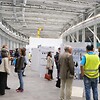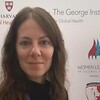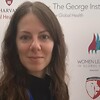-

A cluster contribution to European life science innovation and competitiveness?
-

Phase III win for Hansa Biopharma: “We Are Thrilled”
Swedish biotech Hansa Biopharma’s transplant drug imlifidase has met the primary efficacy endpoint in a registration-enabling Phase III study in the United States.
-

Mikael Kubista back with new venture after turbulent exit
Entrepreneur and researcher Mikael Kubista is starting a new company. Now he is also free to comment on the sequence of events that led to him losing ownership of his life's work – the company Tataa Biocenter. “Not only did they take our company away from us. They followed up by showering us with lawsuits,” he says.
-

Oncozenges tablett mot munsmärta utlicensieras för Gulf-regionen
Oncozenge har ingått ett licensavtal med Dubaibaserade Avernus Pharma om kommersialisering i Gulf-regionen av Bupizenge, en sugtablett under utveckling för behandling av oral smärta.
-

Security flaw in Swedish breast cancer screening software – woman passed away
A lack of safeguard in Sectra's software led to a woman with breast cancer receiving an incorrect diagnosis. She later passed away. The software is used in 20 out of 21 regions in Sweden. It is also used in neighbouring Nordic countries. “Extremely serious,” says the Sectra CEO to Medtech Magazine.
-

Marie Gårdmark: “What to expect from Trump’s second term?”
One may complain about the complex multinational system in EU, but it gives us some predictability that cannot be easily overturned by different member states political agendas, writes Marie Gårdmark in a column.
-

The business coach: “We need to learn from our mistakes”
The past year has been challenging for many biotech companies, with several comapanies facing financial stress and bankruptcy. To understand how entrepreneurs can navigate these tough times, Life Science Sweden spoke to Pia Keyser, a business coach at Umeå Biotech Incubator, who has worked with many companies in the industry.
-

GSK pays 2.2 billion dollars to settle Zantac lawsuits
British drugmaker Glaxo Smith Kline, GSK, has struck a 2.2 billion dollar settlement, thereby resolving a vast majority of the liability cases pending against the company in the U.S. that alleged its discontinued drug Zantac caused cancer.
-

Carl Borrebaeck – professor and serial entrepreneur with a taste for speed
Award-winning cancer researcher, the founder of many listed companies, and constantly in the academic and commercial spotlight for decades. However, Carl Borrebaeck, Professor of Immunotechnology at Lund, is not yet satisfied. “We have a new, potentially super exciting project in the pipeline,” he says.
-

Marie Gårdmark: ”The situation is not satisfactory”
”The legislative tool-box is limited, but carrots in the form of longer exclusivity has already proven successful, this has for example increased registration of new products in rare diseases. But will it also work to increase access for all EU patients
-

Rapid developments in AI – “All stakeholders are struggling to understand it”
Artificial intelligence is being discussed more and more, and developments in the field are moving rapidly. As the Swedish Medical Products Agency testifies, keeping up with developments is not easy.
-

"Unclear proposal from the EU Commission on how to solve the MDR challenges"
Even before the EU regulation on medical devices (MDR) came into force, medical technology companies and doctors were concerned that it would endanger the availability of medical devices in the EU. Unfortunately, the fears have come true.
-

"Are we doing business the wrong way around in the Life Science Sector?"
For the past 50 years we have created solutions for problems that we thought would solve the problems. Pharmaceuticals have created big block buster drugs which were great for that time but now we realise that these drugs were in fact only tested in white men and certainly not for patients who are older who are taking a number of medications.
-

“We aim to be a start-up company with an academic spirit”
Chronic pain and Alzheimer’s are two diseases that plague many people worldwide and seem impossible to cure. However, Huddinge-based company Alzecure is working on developing drugs for both conditions.
-

Neutronmöte i Lund samlar hundratals toppforskare
För första gången hålls en konferens knuten till den nya forskningsanläggningen ESS i Lund. Det är Institut Laue-langevin, ILL, i Frankrike och European Spallation Source, ESS, som tillsammans samlar neutronforskare från hela världen.
-

Amorphous materials take centre stage when Orexo develops new formulations
Swift resolution but with maintained stability. Orexo’s new drug delivery platform tackles the problem of amorphous materials. “Our technology has the positive properties of the material, and it also cracks some of the problems,” says the company’s Research and Development Manager Robert Rönn.
-

Björn Arvidsson: “We need robust and recognized ecosystems for continued competitiveness”
“We have idea carriers and excellent innovation opportunities, and now we must invest in creating ecosystems that provide them with even better growth opportunities,” Björn Arvidsson writes in a column.
-

Giulia Gaudenzi: Innovation for good
"I challenge the innovator landscape to take a mental leap. Relying on innovation-solely to end inequality is not enough, therefore consciously and purposively – we need to engage bravely with the politics of poverty and scarcity. Even in life sciences", writes Giulia Gaudenzi in a column.
-

Sweden and Denmark – this is how they choose their strategies
Scandinavia’s two major powers in pharmaceutical research have developed strategies for growth in life science, and both countries aim to become world leaders.
-

Lucy Robertshaw: There is a bio revolution happening right now
Lucy Robertshaw is both proud and excited to be taking the baton of moderating this year’s Pharma Outsourcing event.
-
Combining two drug delivery strategies to improve bioavailability
Danish researchers hope to increase the bioavailability of low solubility drugs.
-

Delivering drugs with small devices
There are many challenges to overcome when delivering a drug orally. Getting the drug to survive the low pH of the ventricle and being released at the correct site in the gastrontestinal tract are two of them.
-

Giulia Gaudenzi: ”Key lessons from global health research”
The world will still face major challenges in the post Covid-19 pandemic, writes Giulia Gaudenzi at the KTH Division of Nanobiotechnology at Scilifelab, in a column.
-

From spin-off to phase II
”The people there will basically become your new colleagues” – Carina Schmidt, former CEO of Athera, about working with different contractors.
Få tillgång till allt innehåll på Life Science Sweden
Ingen bindningstid eller kortinformation krävs
Redan prenumerant? Logga in
Gäller endast personlig prenumeration.
Kontakta oss för en företagslösning.